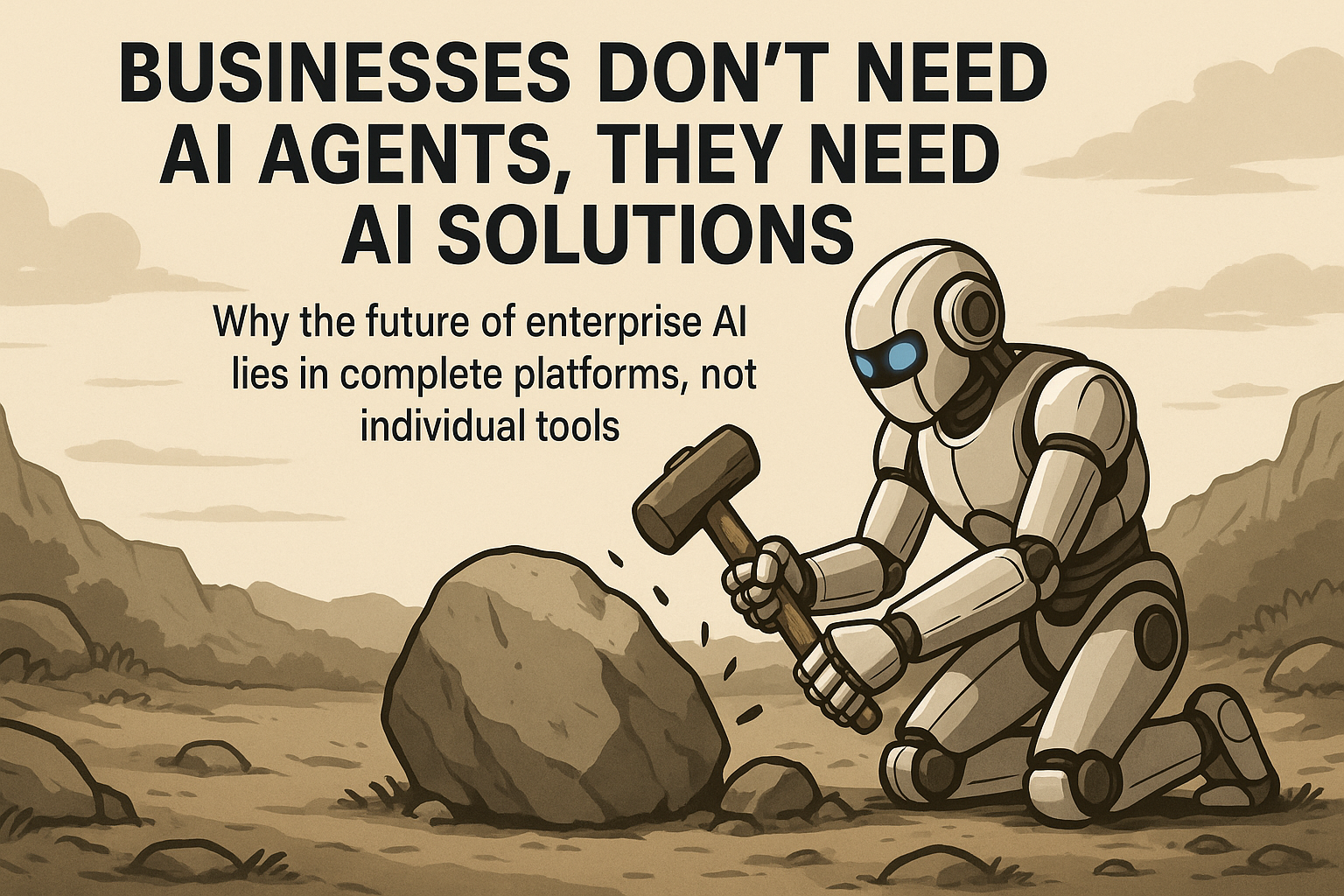Businesses don't need AI Agents, they need AI Solutions

After a year of building and deploying AI agents for Bepo AI customers, I've reached a crucial realization that challenges the current AI narrative: businesses don't want AI tools—they want solutions.
The Agent Tool Problem
Agents are narrowly focused deliverers of outcomes. Give them a task, and they execute it well. But here's the disconnect: business value rarely comes from a single task. We operate through interconnected task sequences that create meaningful outcomes.
When you pitch an AI tool to a business, they'll love your five-minute demo. But reality hits—they're not looking for tools. They're busy running their business and need complete solutions that just work.
Why Hybrid Platforms Will Win
The ultimate AI solutions will combine probabilistic tools (AI) with deterministic tools (traditional software). Platforms that seamlessly blend AI capabilities with robust, predictable infrastructure will dominate.
Traditional software isn't disappearing—nor should it. Do we want AI handling login credentials and security protocols? Probably not. These systems require predetermined logic and excel at delivering consistent, reliable outcomes.
Real-World Example
Consider a marketing team wanting to target ten customer segments. They don't want to buy an agent—they want an application that says, "I'll build ten videos, send them to ten cohorts based on your CRM data, and handle targeting & measurement automatically."
Behind the scenes, agents might access CRM data, analyze customer characteristics, generate content, and manage distribution. But customers experience this as a complete solution, not individual agents they must orchestrate.
Why Applications Survive
Despite agent hype, applications will persist because:
Solutions Over Tools: Businesses prefer buying outcomes rather than tools requiring configuration. Winners will abstract AI complexity.
Hybrid Architecture: Effective solutions combine AI flexibility with deterministic system reliability.
Integration Complexity: Cross-functional processes need sophisticated integration that individual agents can't provide alone.
The Future Landscape
I don't see individual agents replacing business applications. Instead, applications will embed agents intelligently, creating more powerful solutions than either approach alone.
Winners won't simply deploy more agents—they'll thoughtfully integrate AI into comprehensive platforms solving real problems without requiring customers to become AI experts.
What This Means
Evaluating AI solutions? Ask:
- Does this require managing AI agents directly?
- Can it integrate with existing processes and data?
- Does it deliver complete outcomes or just tools to orchestrate?
- Can my team use this without becoming AI specialists?
The Bottom Line
The AI revolution isn't about replacing humans with agents—it's about creating integrated solutions that help businesses achieve goals more effectively. The future belongs to platforms blending AI capabilities with proven infrastructure, delivering complete solutions rather than requiring businesses to assemble AI toolkits.
Agents are powerful tools, but tools alone don't build successful businesses. Solutions do.
Ian Sweeney is an AI expert and entrepreneur focused on practical AI implementation. He co-hosts the Breakneck Podcast, exploring business technology transformation.
